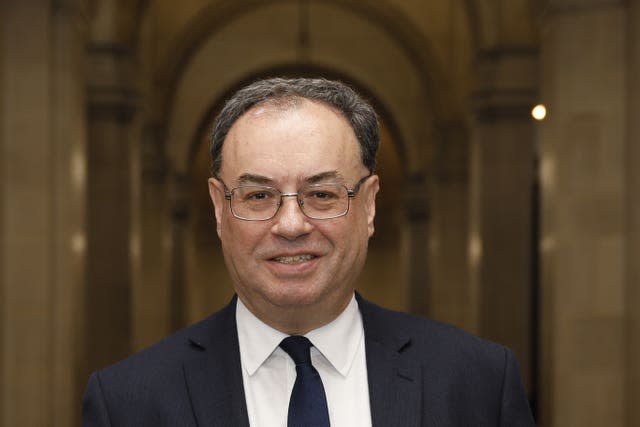Bailey was given time to respond to criticism, author of damning report says
The author of a damning report into the City regulator has dismissed claims that Bank of England governor Andrew Bailey was not given an opportunity to respond to statements made about him.
MPs on Friday published letters they had received from Mr Bailey and a response from Dame Elizabeth Gloster.
Mr Bailey told them he was not given a chance to respond to a specific point that Dame Elizabeth made in her report into potential failings at the Financial Conduct Authority (FCA).
In it, she said that after seeing a draft of the report Mr Bailey had tried to have the names of himself and others at the FCA removed from the final publication.

The now governor said he was not allowed to respond to this point, something that is required if someone is criticised in a report.
However, in her letter to the Treasury Select Committee, Dame Elizabeth set out a timetable showing that Mr Bailey and his lawyers had been allowed access to the final report more than three weeks before it was published in December last year.
She added that others had used this time to raise points with her, which led to some minor changes in the published version.
Dame Elizabeth was commissioned to investigate the way the FCA handled its regulation of London Capital and Finance (LCF).
The investment firm collapsed in January 2019, trapping around £237 million in investments belonging to 11,600 small savers.
Some of the savers have recouped their lost investments from the Financial Services Compensation Scheme, however many are likely to end up out of pocket.
Dame Elizabeth and her investigators concluded that the FCA “did not effectively supervise and regulate” LCF.
After their report was published, the Government said it would set up a separate compensation scheme that might help savers.

 Yahoo Finance
Yahoo Finance